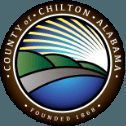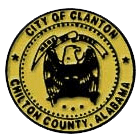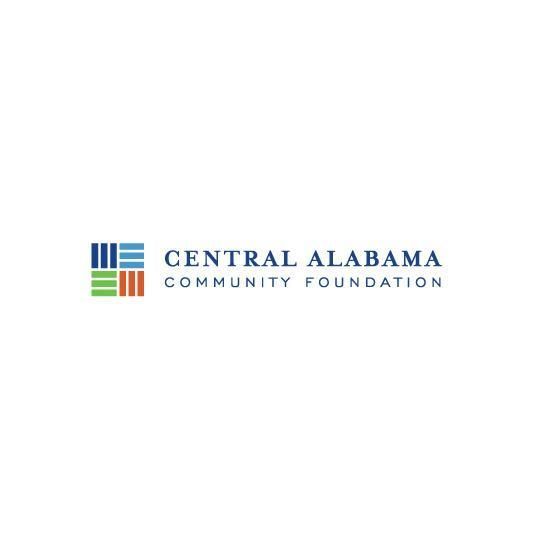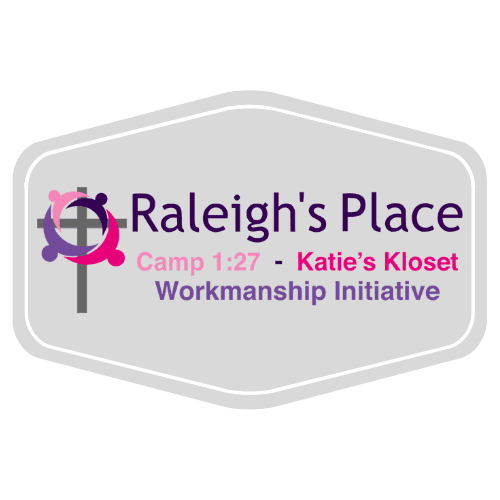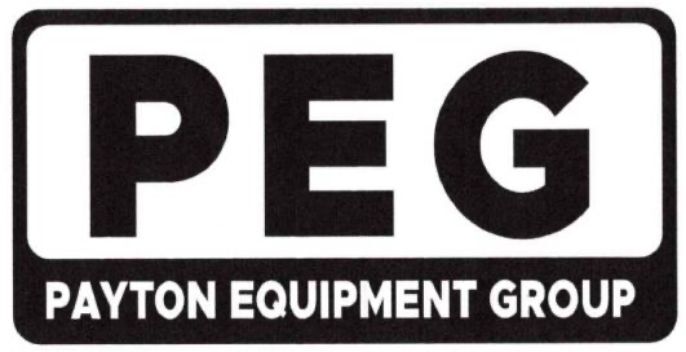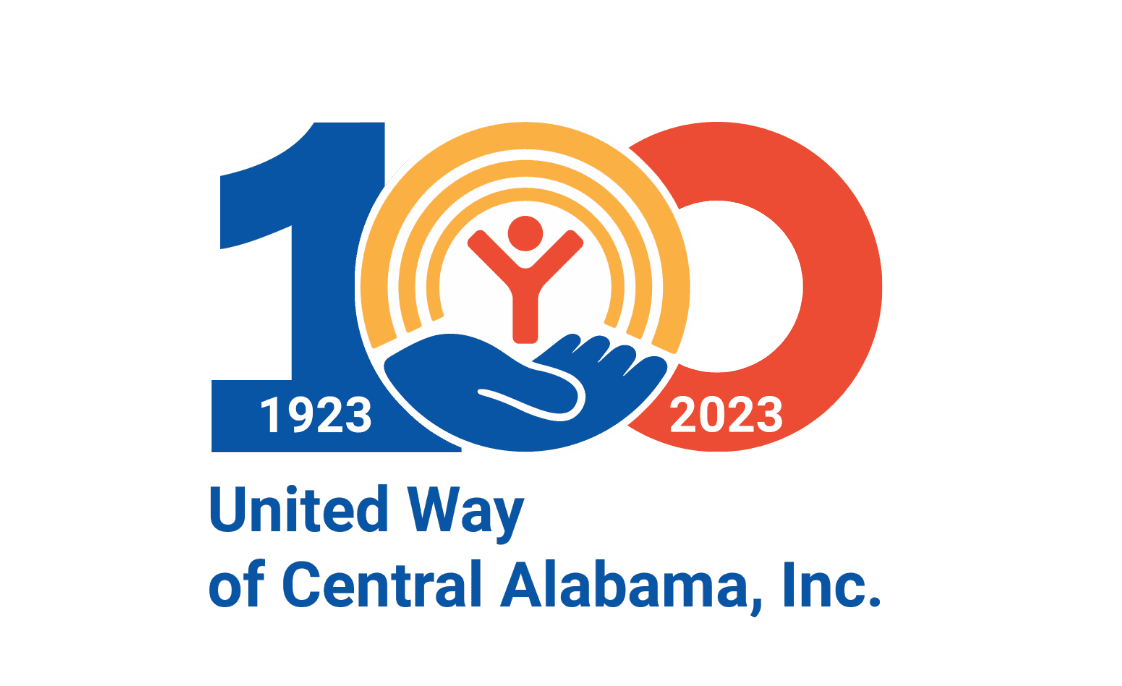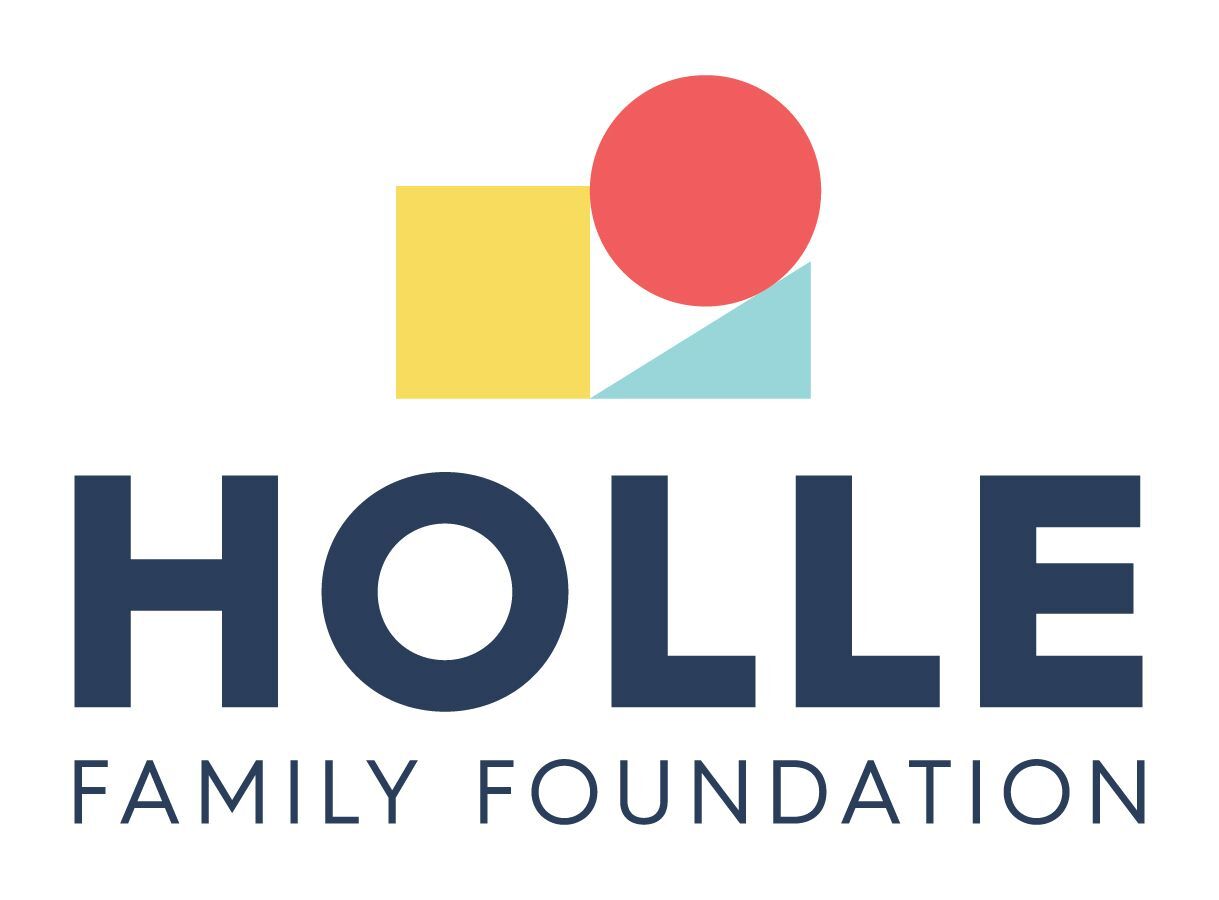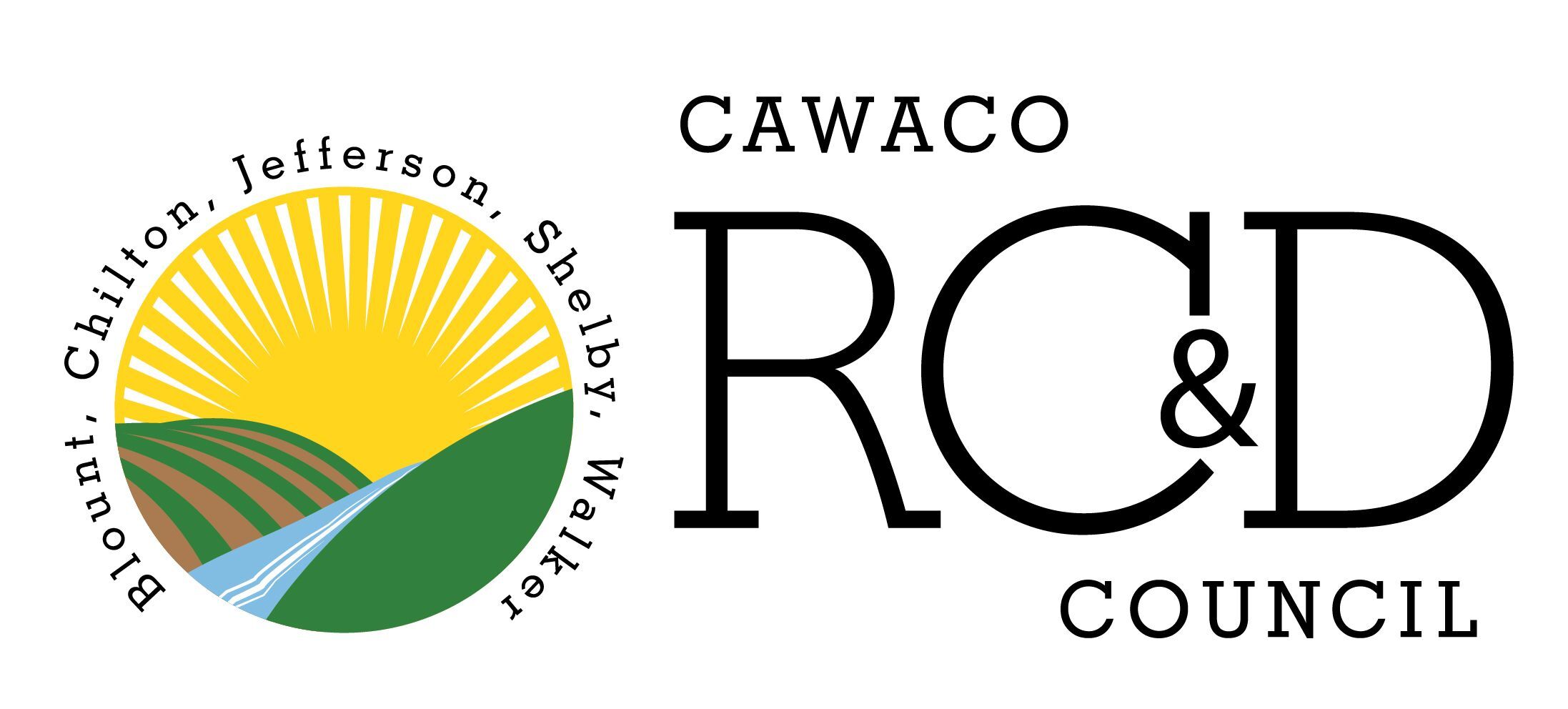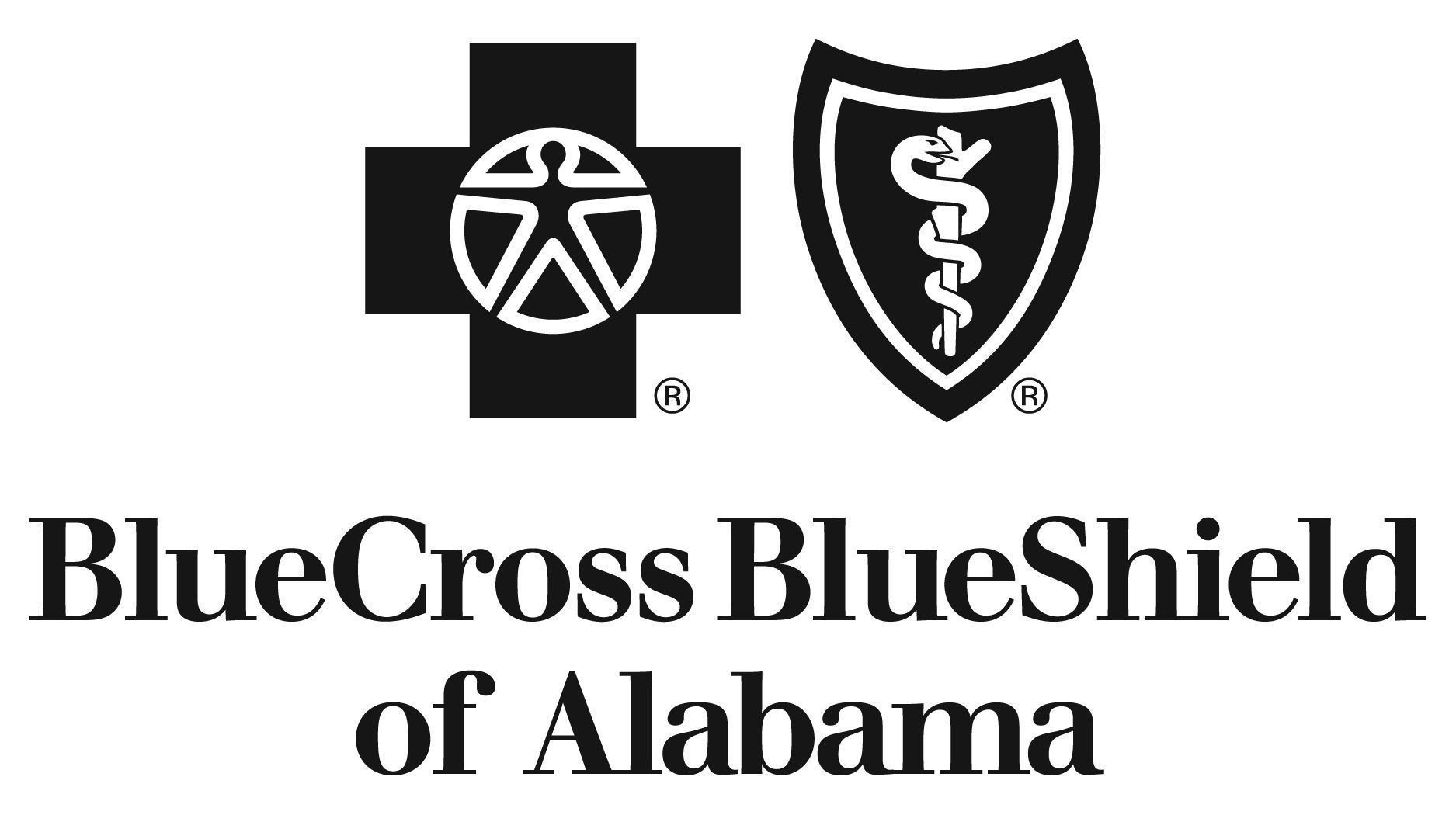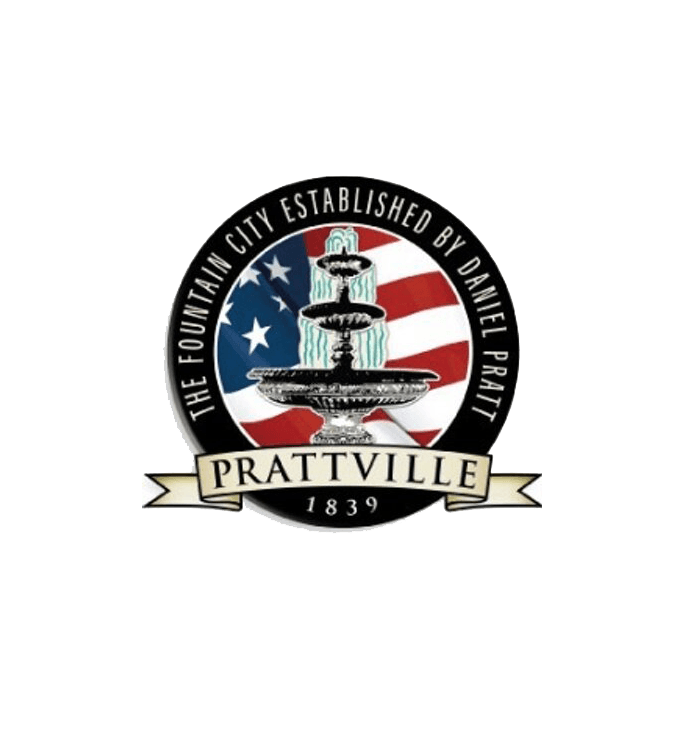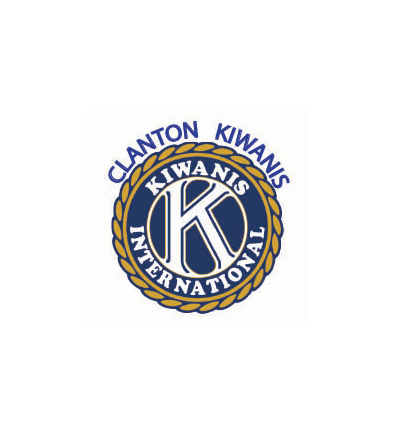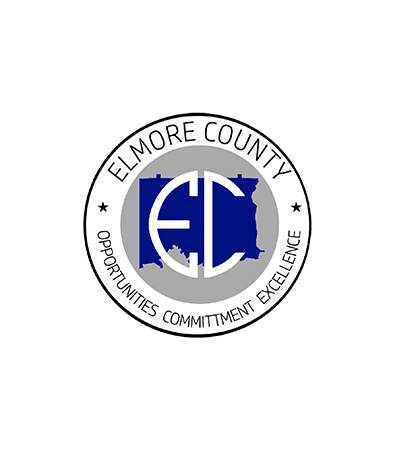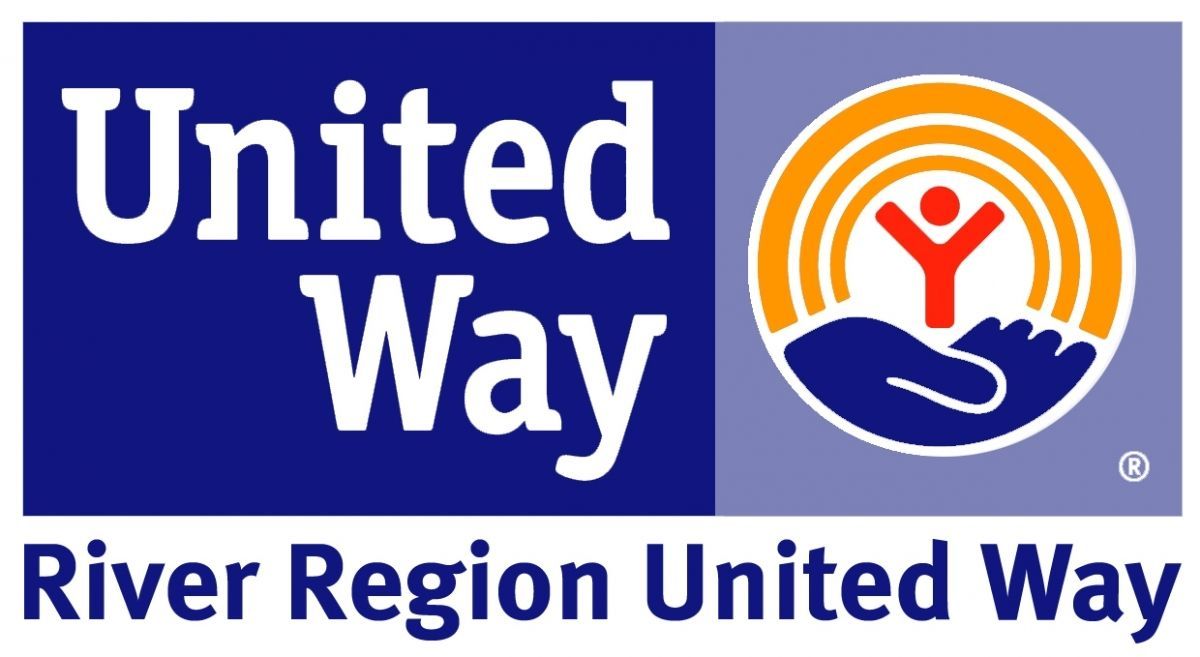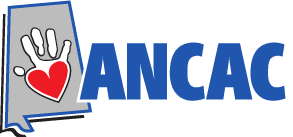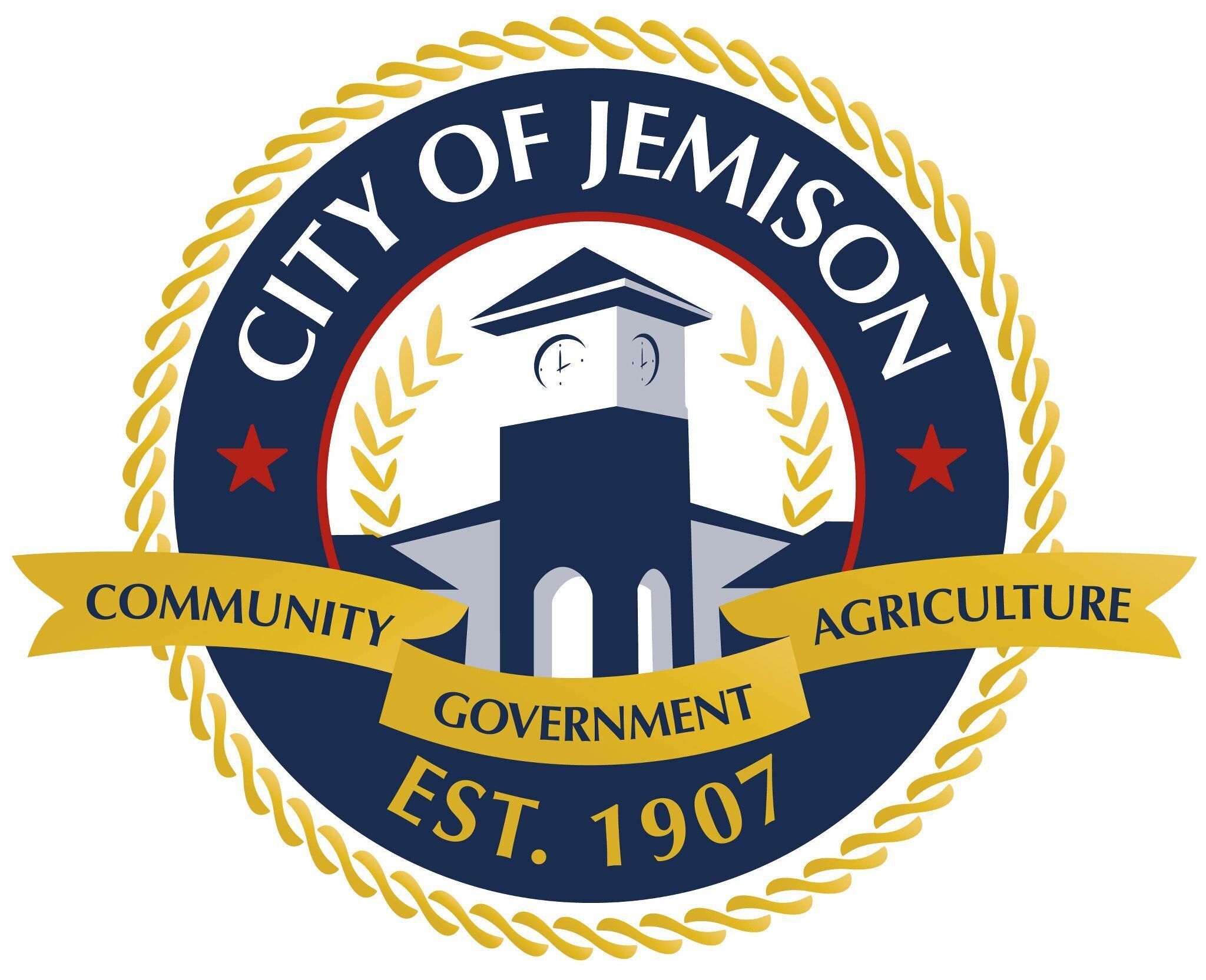Forensic Interviewer Training
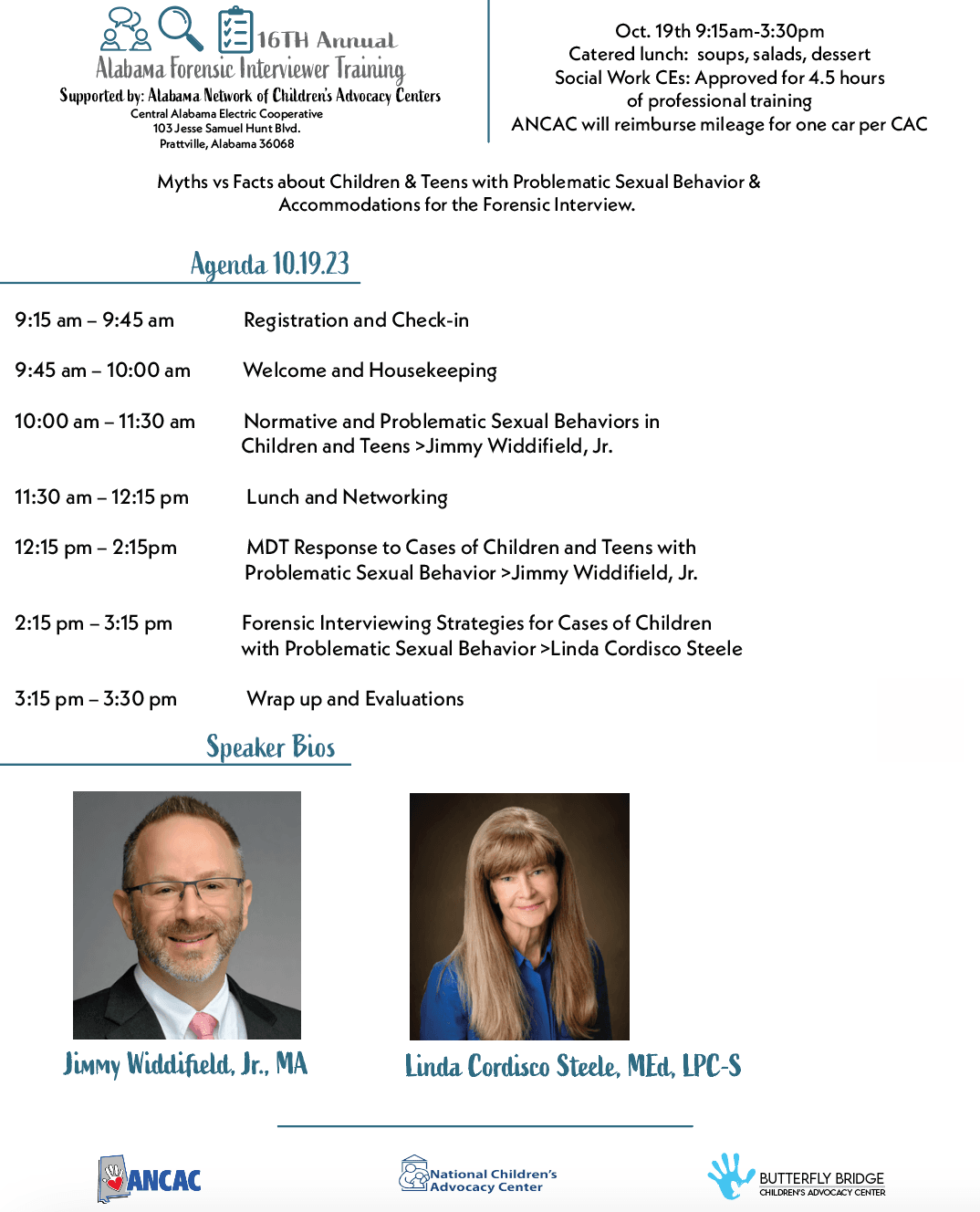
16th Annual Forensic Interviewer Training
Myths vs Facts about Children & Teens with Problematic Sexual Behavior & Accommodations for the Forensic Interview.
Date& Time: Oct. 19th - 9:15am-3:30pm
Location: Central Alabama Electric Cooperative
103 Jesse Samuel Hunt Blvd.
Prattville, Alabama 36068
Catered lunch: soups, salads, dessert
Social Work CEs: Approved for 4.5 hours of professional training
ANCAC will reimburse mileage for one car per CAC
Trainers: Jimmy Widdifield, Jr., LPC (he/him), Director, Training/Technical Assistance for Child Abuse Professionals Project, National Children’s Advocacy Center
Linda Cordisco Steele, Director, Forensic Interviewing Training and Services, National Children’s Advocacy Center
Summary: Children and teens engage in sexual behaviors that range from developmentally expected to problematic and harmful. However, many professionals often misinterpret normative behaviors and are also unequipped to effectively address genuine problematic sexual behaviors (PSB) in the investigative process or intervention. Forensic Interviewers could (and typically do) experience challenges when interviewing children and teens who initiated an alleged PSB, such as when a youth provides self-incriminating information about their sexual behavior with other children. There is little guidance for Forensic Interviewers regarding these cases. Sadly, many children and teens with problematic sexual behavior do not receive the types of services that support a helpful multidisciplinary team response or healthy behavioral functioning and family healing. This workshop will provide information to help forensic interviewers distinguish normative from problematic sexual behavior in children and teens, identify potential contributing factors to the behavior, dispel common misconceptions about these behaviors and children and teens, and have a more robust and evidence-informed response to these cases.
Learning Objectives:
1. Participants will be able to apply a framework to distinguish normative from problematic sexual behaviors in children and teens.
2. Participants will learn research-based information to dispel common persistent and adverse myths that impact professional response to cases of children and teens with problematic sexual behaviors.
3. Participants will be able to identify at least two strategies to enhance professional response to cases of children and teens with problematic sexual behavior.






